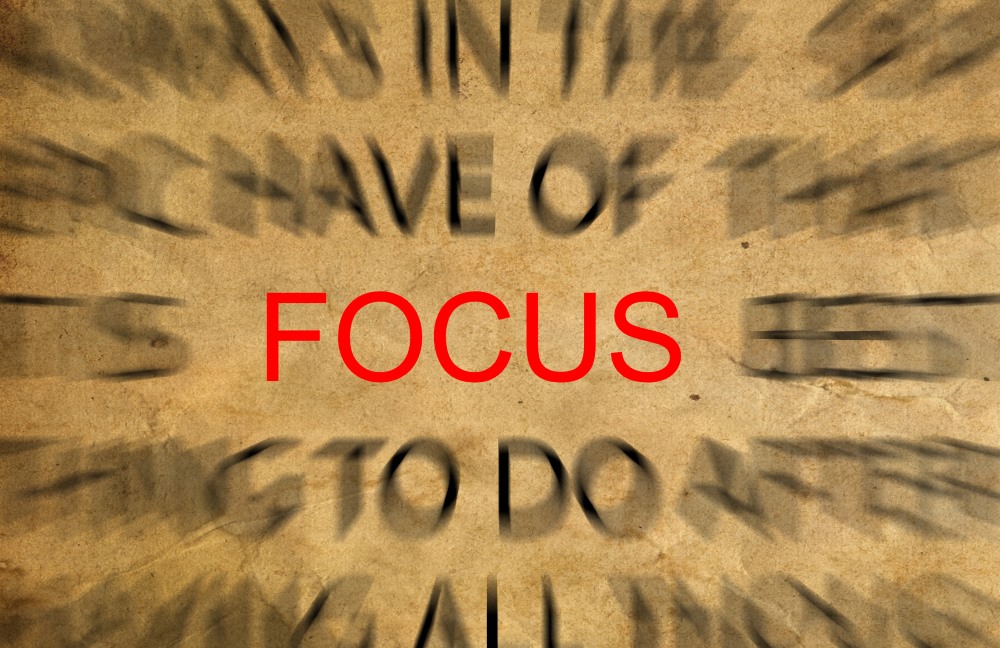Written by Russell Johnson
Consider the computer for a moment: its hardware isn’t very useful by itself. Its usefulness also depends on its software. And on the data with which it’s supplied. And on the instructions it’s given.
These requirements apply equally to our personal ‘necktop computers’. We need to look after our hardware (our bodies), equip them with appropriate software for the activities we want to pursue, and provide them with the data and instructions needed to achieve the results we want.
Our software includes skills in the areas required to advance toward our goals. As our software is upgraded through experience and learning, our capacity for further contribution expands.
But however powerful our software may be, the data we provide and the instructions we issue will still set the limits of the outcomes that are available to us. If we don’t harness the combined potential of all of these, the result will be the same as if that potential didn’t exist.
Give Your ‘Necktop Computer’ What it Needs for the Results You Want
Since you are reading this, it’s clear that your ‘necktop computer’ includes the hardware necessary for a successful and fulfilling life, and some very valuable software too.
But the world of jobs generally doesn’t help us to see our potential clearly. Instead, we are typically given a narrow range of responsibilities within a tightly-defined structure in which our goals are determined mainly by others.
Organizations, and those above us in a hierarchy, have their own priorities. Our opportunities to grow are usually limited by these priorities, and by the roles that surround us. In fact, we are not usually encouraged to set our own objectives or to explore the limits of our potential.
For that to happen, we need to chart our own course.
We can set our own goals – outside of our organization, if necessary. Or even our industry, or our profession. And we can reprogram our own minds and input new data, if necessary, to match our behaviors to the goals we set.
There will be limits, of course, but few of us ever come close enough to achieving our potential for our inherent limits to be an issue.
Life tends to become more satisfying as we tap more of our potential. We need to become conscious of any limiting aspects of our mindset and then to ensure we use our hardware and software in a way that’s helpful rather than harmful.
Following are five mindset keys to doing this.
- Recognize and Respect the Controlling Effects of Focus
It’s widely recognized that to achieve anything difficult, we need to focus intensely on it. But there’s another aspect of focus that’s less well understood. It’s this: the amount of data reaching our senses is so vast that we must screen most of it out to avoid madness and to get anything done.
In other words, we cannot fully see the world as it is. Instead, we see what we’re looking for. If we’re looking for something, we can screen out contradictory data even though it’s right under our noses.
This phenomenon has been detailed in the book The Invisible Gorilla by two psychology professors, Christopher Chabris and Daniel Simons. If you doubt that the power of focus causes us to miss significant things, you may find it’s worthwhile to read it. Or for a quick illustration of the concept in practice, you could take a few minutes to view one of the various YouTube videos on the subject of the Invisible Gorilla experiment.

- Think Abundance, not Scarcity
A prime example of the way our outcomes are determined by what we have programmed ourselves to notice, is the need to think in terms of abundance, not scarcity.
Most of us have been raised to think in terms of scarcity – a concept transmitted to us through social conditioning based on countless generations when scarcity was the typical experience of human beings. Today, we are continually exposed to forms of marketing that reinforce this perception.
For most people, the scarcity mindset is so deeply rooted that its existence goes unrecognized. If we uncritically accept it, we will go through life profoundly disabled.
The scarcity mindset will restrict your ability to see opportunity, while the abundance mindset will expand it. The scarcity mindset leads to acceptance of concepts such as that you have no unique contribution to make. Or that you’ll be on the scrapheap in the future because of artificial intelligence, machine learning, robotics or something else.
Don’t allow yourself to accept such self-defeating perspectives.
To see your potential to create abundance and add value, you must start the willingness to put it to the test through deliberate and systematic action. What’s required is a change in our level of consciousness, where we recognize and embrace abundance of opportunity. We become less interested in competing and more interested in creating.
This shift in consciousness will create a corresponding shift to a desire to associate with people who approach life with a sense of abundance and benevolence. You will benefit from this, and in turn, others will benefit from your making the shift to it.
Why? Because each individual who operates from such a position acts as a centre of influence, inspiring others around them, through their example, to recognize and seek to experience for themselves the benefits of this mode of operation.
- Operate from your Desires, not your Experience
This is a simple concept, but one that too few people are using. Unfortunately, our education systems and the world of work give us little encouragement to find and follow our desires. They’re oriented instead toward maintaining continuity.
We’re encouraged to choose a career early in life and to carefully remain on a path that appears to offer a degree of predictability. This suggests choosing a profession and joining an organization when they’re at the point of maximum need to attract talent.
It’s valid, to a point; it’s often a path to rapid career growth. But there’s a risk in this, too. In an increasingly fast-changing world, today’s high growth industry or organization can be tomorrow’s declining one. And the analytical, linear approach that puts us on a fast track can keep us on it as it declines.
It can allow our focus to be directed by others and kept as narrow as necessary to keep us highly productive, within the definition of productivity that suits our employer. Typically, as the opportunities diminish, and the demands increase.
As we grow older, our experience and our income requirements tend to keep us on the path on which we began so optimistically. More often than not, long past the point where we would have been better off to move on to new challenges.
At this point, the conditioning that we have accepted reinforces the status quo, leaving those who were pioneers in our field, comfortably empowered. And the rest of us, disempowered.
Certainly, caution has a valid place in our lives. However, an overly cautious path will eventually become stultifying. And increasingly dangerous. It leaves many people unprepared and stuck when the time for a change arrives.
Challenges, and time spent outside the comfort zone, are vital for a fulfilling life.
To follow our desires, we need to feel in control of our lives. And to experience this level of control, we need to avoid beginning by working out what our strengths are, and where they’ll be valued. We need to start instead by determining what excites us.
We need to allow ourselves to focus on what we want to do. And on the kind of person we want to become through doing so. These things have the power to excite us precisely because we’re innately drawn to becoming comprehensively capable rather than highly capable inside a very narrow sphere and deeply disabled outside it.
This expansion of our perspective is the only way we can access all the power that’s available to us.
The Aspects of Desire to Cultivate
Clearly, not all desires are relevant to advancing your career. Many of our desires are quite naturally focused inwardly; a career must be focused outwardly. There are three aspects of desire that can help you achieve the most enduring career success and fulfilment:
- The desire to create (which encompasses becoming more comprehensively capable)
- The desire to contribute or to serve others through personal interaction
- And a focus on changing a condition in society for the better.
Separately, they’re powerful. In combination, they’re all but unstoppable.
- Be a Buyer, not a Seller
You’ll need the mindset of a buyer, not a seller. The buyer mindset is vastly more powerful, as well as more enjoyable.
Start by thinking about what you want to achieve, and only then about your current value proposition:
- What is the value you want to create? For what kind of person? For what overall benefit to society?
- Where do you really want your career to go? Why? What excites you about this?
- What are you really bringing to the market that makes you stand out?
In making this shift, you will instantly become more attractive to others because you’ll radiate a different kind of energy. The energy of motivation to achieve and to contribute attracts others, while the energy of need repels them.
When considering a new role, your first question to yourself should be ‘Am I excited about this?’
When we embrace this perspective, the search for any new role will begin with the mindset of a buyer, not of a seller. This is where the transition must begin. Within us, with a search for what we want to do with our lives, not merely a search based on our material needs.
When the search begins on this basis, the possibilities become open-ended.
- Operate From Conviction
What do great salespeople consider the most critical thing in selling? The answer is to be selling the right product or service – one they BELIEVE in.
The same thing applies when taking our careers where we want them to go. To be compelling to others, we must first be compelling to ourselves.
It comes down to this, in fact – our first sale is always to ourselves. Unshakeable belief is vital – both in yourself and in what you’re aiming to do. The value you bring lies in your beliefs about yourself and your level of commitment to the work you do.
It’s not enough to only be offering a certain level of skill, because that doesn’t guarantee you’ll have your heart in the work itself. Don’t ever undermine yourself by reducing your goals to a level that doesn’t excite you. If you accept a role to which you don’t really want to commit yourself, you’ll reduce your capacity to produce results, while undermining your self-esteem.
We only accomplish a lot in life if we’re internally driven. So we need to find a path that matters enough to us to commit ourselves to it. We need to believe it deserves our commitment – that it’s worthy of our very best effort.
When you’re implementing these five essential aspects of a strategic mindset, you’ll be ready for the next major one – developing a compelling vision and a strategy to achieve it.




